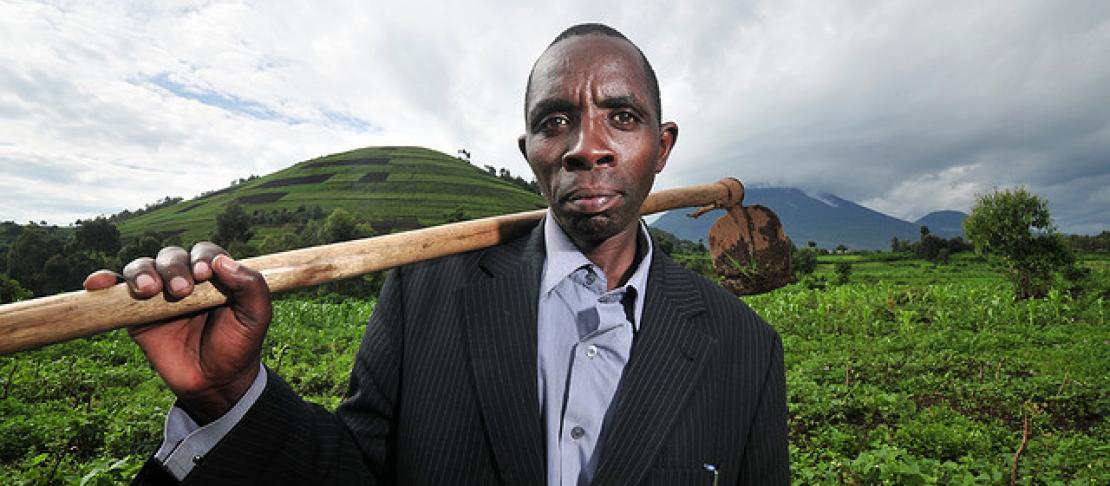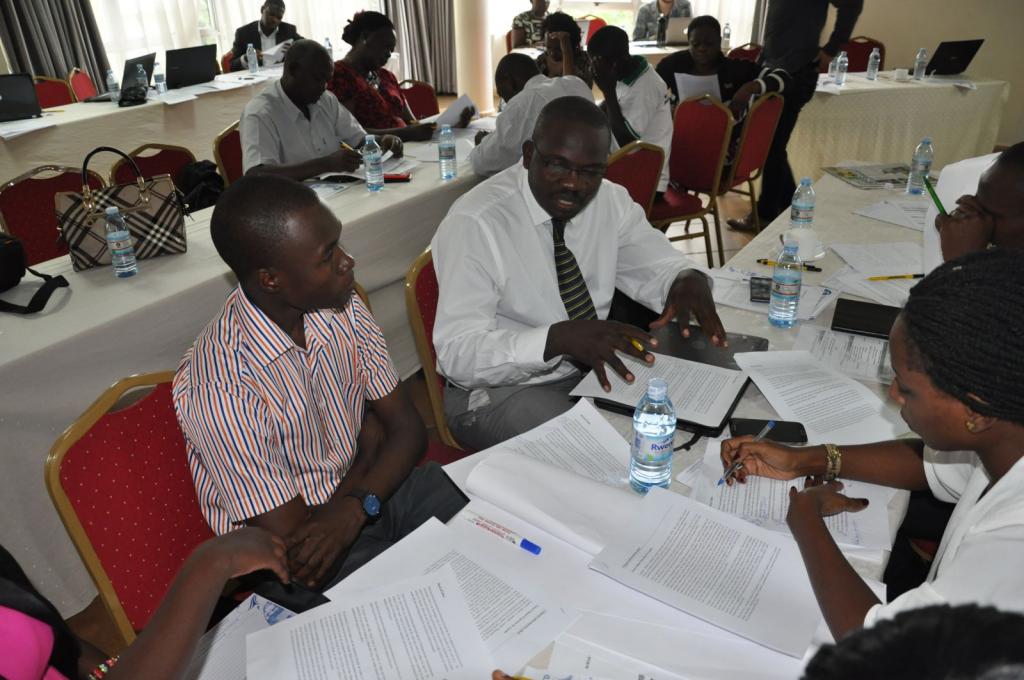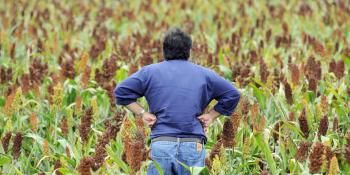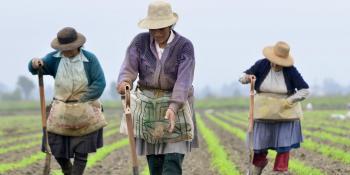Climate proofing Uganda's agriculture sector

A look at scenario guided review of Uganda's Agriculture Sector Strategic Plan.
Although agriculture is the mainstay of Uganda’s economy, the sector has been facing many challenges. Drought and pest epidemics are among the top climate related risks facing the sector. Other challenges include poor farming practices, low value addition to agricultural produce, limited market access and weak implementation of agricultural laws and policies.
In order to enhance readiness to address risks and challenges to the sector, the Uganda government through the Ministry of Agriculture, Animal Industry and Fisheries (MAAIF) is working with a number of partners — among them the CGIAR Research Program on Climate Change, Agriculture and Food Security (CCAFS) — to mainstream climate change into national agriculture plans and agriculture into climate change policy. The Agriculture Sector Strategic Plan (ASSP) is a five-year strategy which defines the priorities and interventions to be implemented for the period from 2015/16 to 2019/20.
Research and development partners together with MAAIF met on 3rd and 4th November 2015 in Kampala to review, with a climate lens, the draft ASSP. The two-day workshop raised awareness of the Plan, and provided a platform for non-state actors to contribute and undertake a scenario-guided review of the ASSP. Researchers from the CCAFS project on Policy Action for Climate Change Adaptation (PACCA), which is led by the International Institute for Tropical Agriculture (IITA), participated in the meeting. Other players included Uganda National Farmers Federation (UNFFE), Agri-Pro Focus, Participatory Ecological Land Use Management (PELUM), Oxford University and Environment Management for Livelihood Improvement (EMLI).
Scenario guided policy review
The PACCA team facilitated the meeting with support from Lucas Rutting, a scenario and policy researcher
Scenarios can be used to explore different directions of change in climate, markets, governance and other key factors
at Oxford University. While introducing Uganda scenarios to participants, Rutting said scenarios are not strategies but a tool for testing strategies.
“Scenarios can be used to explore different directions of change in climate, markets, governance and other key factors,” Rutting said.
Through scenario testing it is envisioned that the ASSP will be more robust in the face of future uncertainty, taking into account both climate change and socio-economic developments.
The ASSP review workshop process
Participants were divided into four groups based on Uganda scenarios, which had been down-scaled to the local level during a previous workshop in February 2015.

Workshop participants engaging in discussions to review the ASSP. Photo: J.Okiror (IITA)
On day one, participants were required to extend Uganda scenarios with climate information. The Intergovernmental Panel on Climate Change (IPCC) climate projections for East Africa and the climate proofing questionnaire derived from a CARE International toolkit were provided. Participants went through the checklist with the help of a group facilitator, to ensure that every aspect was addressed in the scenario narrative.
On day two, participants analyzed and reviewed the ASSP using the Uganda scenarios extended with climate information. The document was first subjected to a broad review; participants scrutinized the overall targets and objectives to ascertain whether they were likely to be achieved in their particular scenario.
Looking at the different socio-economic scenarios described, it was the participants' task to match interventions proposed in the ASSP and come up with recommendations to avert negative consequences associated with the projected scenario. Then, participants checked the entire document to find out what had to be improved, changed or added in order to make it work in their particular scenario. All of the new recommendations were recorded and presented in plenary. Moving forward, they will be incorporated into the revised ASSP, which is projected to be more robust in the face of future socio-economic development, climate change and the complex interactions between them.
About PACCA
The PACCA project seeks to inform and link policies and institutions from national to local level for the development and adoption of climate-resilient food systems in Uganda and Tanzania. The group is collaborating with relevant ministries and departments, national research institutions and other non-state agencies involved in climate change work in Uganda and Tanzania
Learn More about PACCA´s Scenarios Work:
Project takes action for climate responsive policies in East Africa
Scenario guided policy planning makes headway in Tanzania
John Francis Okiror is a Communications Intern with the Internationa Institute for Tropical Agriculture. He supports communications for the IITA led PACCA project.
Blog edited by Vivian Atakos, Communications Specialist - CCAFS East Africa.



